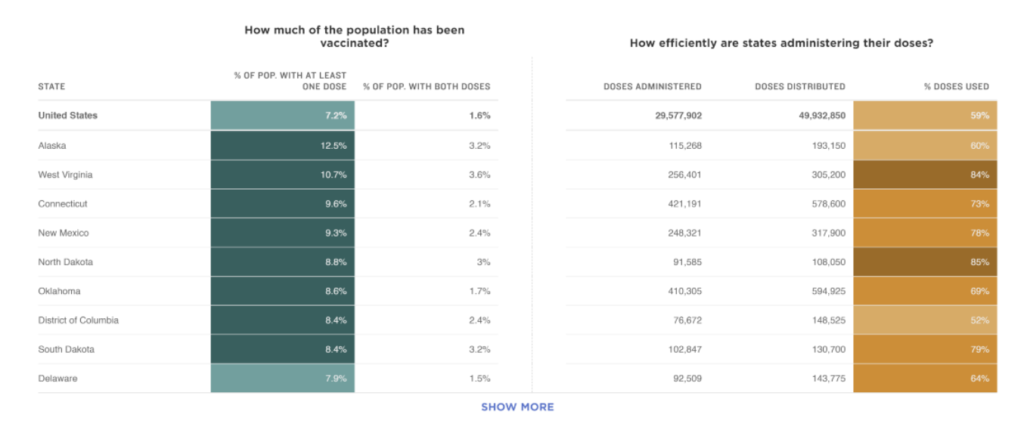Excerpt:
Israeli researchers have found that having just one shot of the Pfizer coronavirus vaccine may lead to lower viral loads, making it harder to transmit COVID-19 if someone becomes infected after the first dose.
And it’s not the only positive research about the Pfizer jab to come out of Israel recently.
A separate independent Israeli study, from the country’s largest healthcare provider Clalit, found a 94 per cent drop in symptomatic COVID-19 infections among 600,000 people who received two doses of the Pfizer vaccine.
Researchers also found the fully inoculated group was 92 per cent less likely to develop severe illness from the virus.
Author(s): Lauren Roberts
Publication Date: 18 February 2021
Publication Site: Australian Broadcasting Commission News

